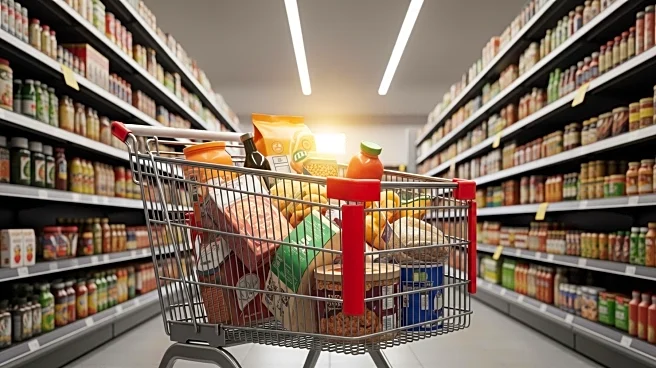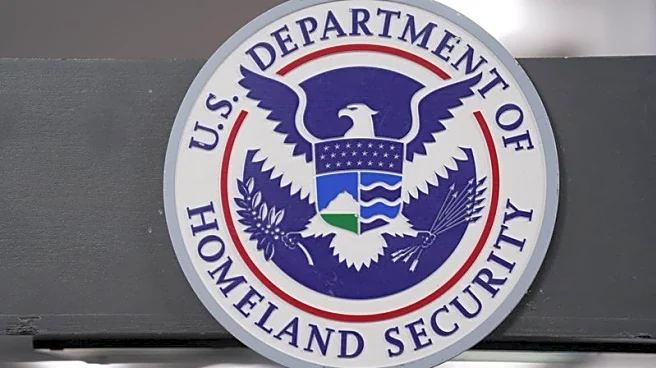What's Happening?
Amazon has announced the launch of Amazon Grocery, a new private-label brand that offers a variety of grocery items, most priced under $5. This initiative combines the Amazon Fresh and Happy Belly lines into a single collection, aiming to provide quality grocery items at competitive prices. The brand includes a wide range of products such as milk, olive oil, fresh produce, meat, and seafood, available both online and at Amazon Fresh stores. The move is designed to cater to price-conscious consumers, offering over 1,000 items that maintain quality and taste while helping customers stretch their grocery budgets. Amazon Grocery will compete with other private-label brands like Walmart's Great Value and Target's Favorite Day.
Why It's Important?
The introduction of Amazon Grocery is significant as it reflects the company's strategy to capture a larger share of the budget-conscious consumer market. By offering products at lower prices, Amazon aims to attract customers who are increasingly sensitive to grocery costs. This move could potentially disrupt the grocery industry, challenging established brands and retailers. The expansion of Amazon's private-label offerings also highlights the company's focus on increasing its market presence and consumer loyalty. As private-label brands gain popularity, Amazon's initiative may lead to increased competition, driving other retailers to adjust their pricing strategies.
What's Next?
Amazon plans to expand its product offerings under the Amazon Grocery brand, with new items such as frozen pasta meals, pie fillings, granola, and deli meats expected in the coming months. The company is also enhancing its Same-Day Delivery service, allowing customers in 1,000 U.S. cities to order perishable food items alongside other products. This expansion could further solidify Amazon's position in the grocery sector, potentially prompting competitors to innovate and improve their own delivery services and product lines.
Beyond the Headlines
The launch of Amazon Grocery may have broader implications for consumer behavior and retail strategies. As Amazon continues to grow its private-label offerings, it could influence shopping habits, encouraging more consumers to opt for budget-friendly alternatives. This shift might lead to increased pressure on traditional grocery brands to differentiate themselves through quality, sustainability, or unique product offerings. Additionally, Amazon's focus on affordability could spark discussions on the impact of pricing strategies on consumer access to healthy and diverse food options.











